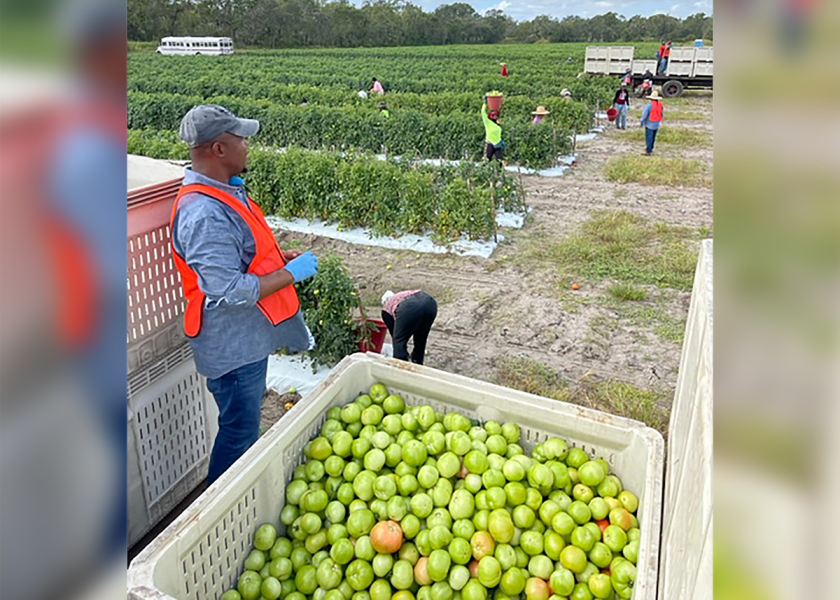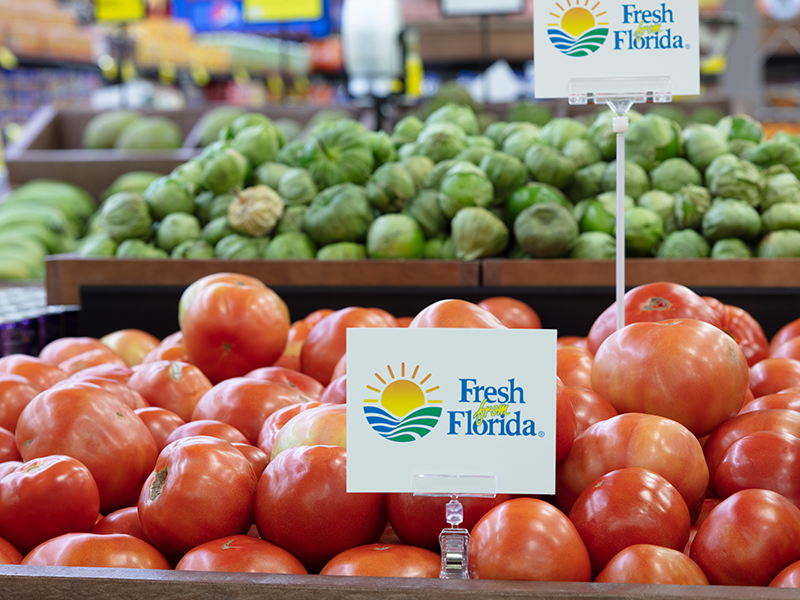Amid challenges, passion drives Florida tomato growers

It’s not easy being a tomato farmer in Florida.
Foreign competition, unpredictable weather patterns, pest and disease problems, regulatory burdens and the rising cost of labor are just some of the challenges the state’s tomato growers face. But even as their numbers dwindle, enough die-hard farmers remain to earn Florida the No. 1 ranking for the value of fresh-market tomatoes in the U.S.
In 2021, Florida tomato cash receipts totaled more than $323 million, second-highest of Florida specialty crops, according to the Florida Department of Agriculture and Consumer Services. But the tomato-grower population has dropped dramatically over the past few decades.
About 50 growers farm tomatoes in the state today, down from about 80 in 2013, said Michael Schadler, executive vice president of the Maitland-based Florida Tomato Exchange. Around 300 tomato growers operated in Florida in 1990.
Generally favorable weather throughout the winter makes Florida a good place to grow tomatoes, said Sam Hutton, senior breeder with Immokalee, Fla.-based Lipman Family Farms.
“But there are plenty of challenges,” he said.
The state can have a lot of rain, and there’s disease pressure as a result of the humid environment, he said.
Competition from foreign suppliers, especially Mexico, is another concern.
“[Mexican growers] can really produce a lot of tomatoes at the same time Florida is producing tomatoes, so that competition is also a big challenge for Florida,” he said.
Mexican growers can “dump” their tomatoes in the U.S. below the cost of production, Schadler said.
“In 2019, the Commerce Department found that Mexican tomatoes were being dumped at margins as high as 30%, even with the suspension agreement in place,” he said.
The wage disparity between the two countries is “massive,” he added.
“For a crop like tomatoes that is harvested by hand, that can make it difficult to compete, which is why Florida’s farmers have become very efficient and world-class operators,” Schadler said.

Bob Spencer, president of Palmetto, Fla.-based West Coast Tomatoes, agreed.
“One of the things that competition forces you to do is get better,” he said. “We’ve managed to do that.”
Last year, one of the company’s farms was wiped out by a hurricane, he said. Yet Spencer maintained a positive outlook.
“We’re optimistic people,” he said. “If we weren’t, we would have given up a long time ago.”
Spencer doesn’t believe in relying on foreign producers to feed U.S. consumers.
“From a national security perspective, it’s nice to have produce grown in Florida in the wintertime,” he said.
He also pointed out that it’s a shorter trip from Florida to the East Coast, where the company has a number of customers.
An influx of residents from other states wishing to avoid a state income tax also has had an impact on tomato growers, said Chuck Weisinger, owner of Weis-Buy Farms Inc., Fort Myers, Fla.
“That’s shot the cost of land up,” he said.
The population surge also has put a strain on the water supply, he added.
Cost of growing an acre of tomatoes can reach $13,000, Weisinger said.
Weisinger retired from his growing operation last year and now works as a tomato broker, where he continues to supply customers.
“We’ve got new flavorful varieties, and we want to keep Americans coming and using the best product so they can feed their families,” he said.
Tony DiMare, president of DiMare Homestead and DiMare Fresh and vice president of DiMare Ruskin, said his family has been involved in agriculture for 96 years.
“It’s a great industry,” he said. “You’re in a business producing food and fiber for the consumers of this country and, in some cases, outside of the country.”
Tomatoes were always a core item on the farming side for the DiMares, he said, although acreage is down significantly from past years.
“Availability of labor continues to be the biggest concern,” he said.
Schadler said most of Florida’s major tomato growers have shifted to using mostly H-2A workers.
“That enables us to maintain our production capacity, but it’s a challenging and expensive program to use,” he said.
Despite the challenges, demand for Florida tomatoes remains strong, Hutton said.
“There may be less of a demand than there used to be, but a lot of stores and restaurants want an affordable product, and you can grow an awful lot of tomatoes in the field pretty efficiently down here in Florida,” he said.







